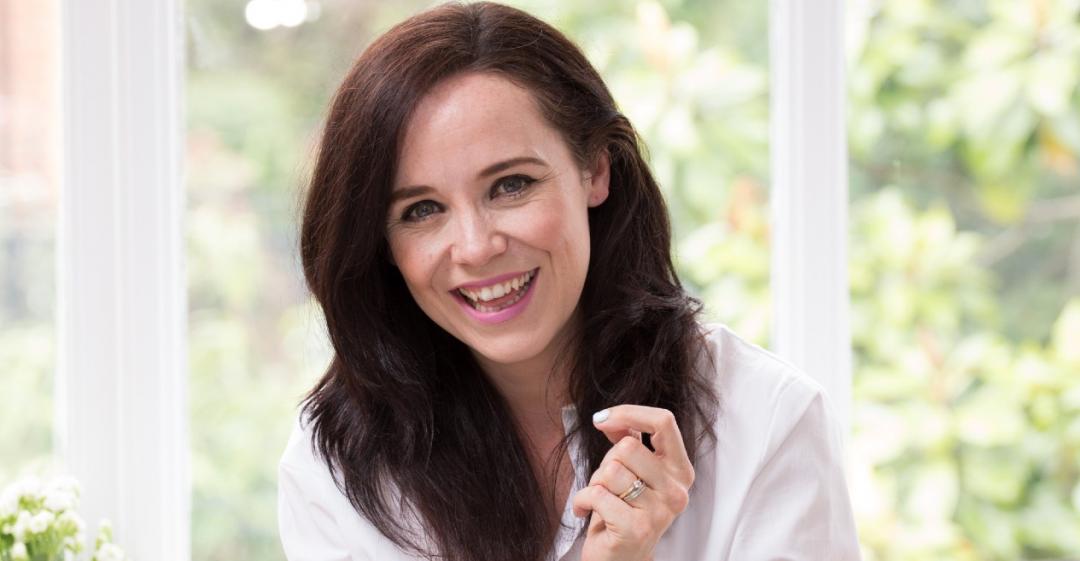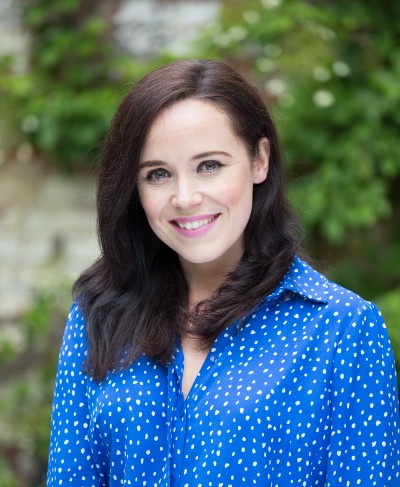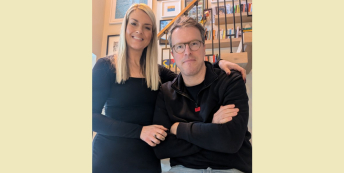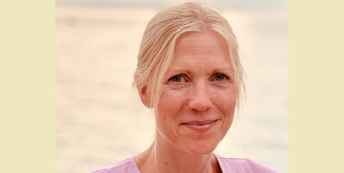“Sometimes I'd think, 'Hey, this isn't so bad', and sink back into my old patterns.”

What work were you doing previously?
I was Head of Content at a digital marketing agency.
What are you doing now?
I'm a freelance creative copywriter and sometime journalist.
How did you feel in your work before you decided to make the change?
I'd been working for the marketing agency for around eight years in total, so I had a strong emotional attachment to the people I worked with and some of the longer-term clients too.
But increasingly, I wanted to do more of the writing and creative side of things, and less of the other responsibilities, like project management or getting involved in more technical stuff.
I was also growing in confidence and knew there were certain things I wanted to try out or do differently.
It was difficult. I had such strong relationships, but over time my need for autonomy and more freedom grew.
I carried that internal tension for a long time.
Why did you change?
I wasn't happy, but I wasn't unhappy, exactly.
Those strong attachments and the fact that I wasn't in totally the wrong position meant it wasn't a straightforward move.
I would have periods of energy where I would mind map, journal, whiteboard out everything I was feeling in a desperate search for a way forward. At other times, I'd think "Hey, this isn't so bad", and sink back into my old patterns.
It was mentally exhausting, but not so terrible that it forced me to act.
When was the moment you decided to make the change?
The moment that forced the change was the birth of my second son last year.
With the price of childcare, I knew I wouldn't be going back to work full-time, but as the end of my maternity leave crept closer I knew there was no going 'back' in any sense of the word.
I didn't want to get back to a 9–5 pattern. I didn't want to get back to the daily commute. I didn't even want to get back into my old clothes (if I could fit!) and put that old work 'mask' on again.
How did you choose your new career?
I'd considered freelancing as a copywriter before, but a lack of confidence and a good dose of fear kept me from making the leap.
But this time, I had a feeling that I could do it, and that this was the right time. It was pretty obvious what I could do. I'm an experienced writer with solid marketing experience, and I'd worked at a senior level with MDs, CEOs and business leaders. Everything I'd learned at the agency, I could adapt for smaller clients and do myself.
I wanted a creative life, built around my absolute love of writing. There were no other career options in the running.
Are you happy with the change?
I am really happy with the change!
I have a small but lovely collection of clients. I've turned down work I didn't fancy. I've started a newsletter and begun writing essays every week.
I work when I want and I spend two days a week with my children too. It's everything I wanted.
Actually, it's been more.
What do you miss and what don't you miss?
Every freelancer will tell you that they miss the certainty of a salary, and I'm no exception.
That's a big mental hurdle to get over. I still get a pang when my old salary payment date rolls around each month.
I also miss my old team, who were people I knew and worked with for years. It can be lonely working for yourself, particularly in a pandemic when you can't attend events or even have a drink and a catch up.
You go from having people to bounce ideas off to making all of your own judgement calls, for good or for bad. You find out what you're really made of, but it can be hard.
How did you go about making the shift?
Telling my former boss that I wasn't coming back after my maternity leave was truly one of the hardest conversations I've ever had.
I joined the business in the first year and was the first employee. We had grown to become more like business partners and were great friends who hung out, knew each other's families and weathered some really funny and mad stuff together. That was tough.
Logistically, it was simple though. I applied a lot of skills I'd honed in my years at the agency. I commissioned a designer to create my brand, built a website, set up a newsletter list, updated my LinkedIn and then I was away.
It was that simple, although I appreciate a lot of that was down to my marketing background.
What didn't go well? What wrong turns did you take?
I made the biggest howler of my career about a month in.
I took on a piece of report writing in a sector I knew nothing about. Even worse, I was commissioned by a personal connection. I didn't ask for a brief or anything to help me, as I was so recent to freelancing and quite honestly, I really needed the cash.
It ended up taking a lot longer than I'd budgeted for and I was stressed out the entire time.
When I finally finished it, the client hated it. Absolutely tore it apart. I had never had such negative feedback, ever. I actually cried. I did my best to fix it but it was a valuable lesson in focusing on what you know you can deliver. I ignored the red flags and got burnt as a result. My connection never replied to my last email either, so it cost me personally too.
These things happen, but because it was right at the beginning of my freelance journey it did knock my confidence for a while.
How did you handle your finances to make your shift possible?
My husband and I sat down and took a cold, hard look at our life and spending.
We worked out different options for childcare (our biggest expense) and figured out how many days I could afford childcare, and how many I would need to be earning an income.
We also cut way back on general 'unconscious' spending – the random subscriptions and purchases. We're leaner and more careful now, and while I'm still growing my clients and income, I don't miss much from a material point of view.
I'm grateful for what I can afford, and more importantly, the time and flexibility I have now. Nothing material – no lunchtime shopping or Amazon binges – can give me that feeling.
What was the most difficult thing about changing?
Managing the fear, and the ebb and flow of freelance life.
Sometimes you have lots of work and you feel 12 feet tall. Other times, you stare at your screen wondering how you'll make any money that month.
But one call or one email can change your course, and having that faith and staying positive is one of the big lessons.
What help did you get? 
I found the Careershifters website early on while I was still working at the agency and devoured probably every blog post ever written.
I went to a workshop too, and was so excited I almost quit my job on the spot. I still read the newsletter every month; it's such engaging, thoughtful content.
Other than that, I talked a lot to close friends and family, to get a read on what they thought.
That said, there comes a point where only you can make the leap.
What resources would you recommend to others?
Careershifters was brilliant. I also really enjoyed the Free Range Humans website and book.
But I recommend that you just talk to the people in your life you trust to get kind but honest opinions. You might be surprised at how people you know in one area of your life may be able to help you professionally. Your mum's friends may work in a business that could hire you. Your neighbour might know someone looking for your skills. Who knows?
What have you learnt in the process?
It sounds corny, but life is what you actively create. It's all there for you – if you want it.
Don't assume things are out of your reach, or that because you're too scared, or you have a mortgage and children, you'll have to wait to retire to start to live your life.
The world rewards bravery, openness and a desire to do great things.
What would you advise others to do in the same situation?
That life and work are one and the same, and they're both for loving to the fullest.
You can love what you do, get paid and be with your family; there are no limits. You might have to reimagine life or do things differently, but anything can be worked out.
Think about what you love to do and build a life around it. You're never too committed, too old or too broke to do that.
To find out more about Ciara's services, visit www.caracontent.co.uk.
What lessons could you take from Ciara's story to use in your own career change? Let us know in the comments below.



